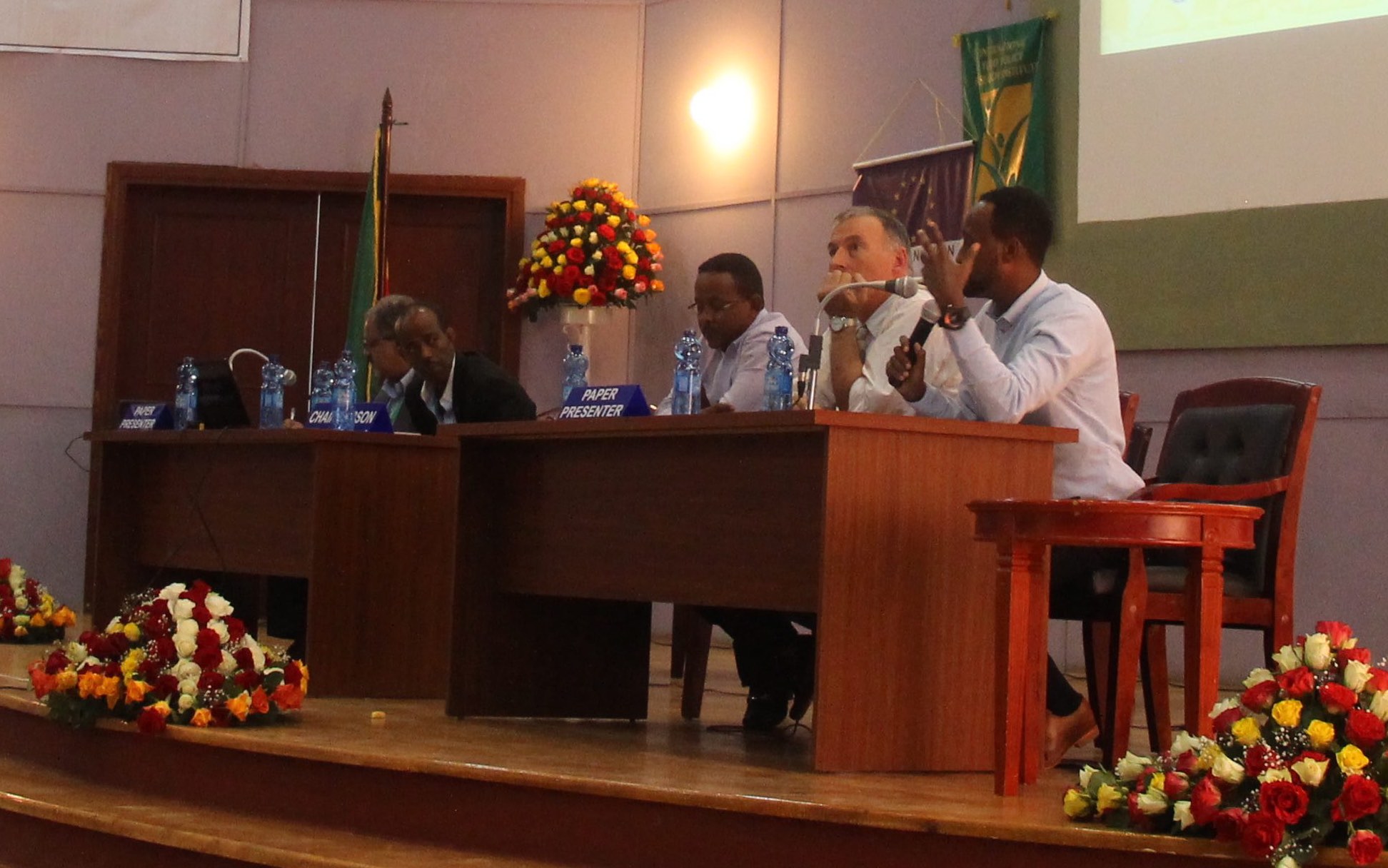Teff is the single most important crop in Ethiopia: 43 percent of all farmers grow it. It is the biggest cash crop in the country—the value of its commercial surplus (CS) is equal to the value of the CS of all other cereals combined. Teff’s production value is approximately one third higher than even that of coffee, Ethiopia’s most important export product. Thus, teff is an extremely important income-generating crop—especially for smallholder farmers.
Yet teff is often called an “orphan crop” because it receives little attention compared to major staples such as wheat or rice. The Economics of Teff: Exploring Ethiopia’s Biggest Cash Crop— published by IFPRI with contributions from 27 authors—is the first book of its kind to comprehensively cover issues including agronomy, production, marketing, consumption, and health benefits associated with this grain. The book’s main aim is to focus more attention on teff in order to improve debate and decision making, given that demand is expected to increase significantly in the future as Ethiopia’s population and incomes rise.
A panel discussed the book’s findings and current issues surrounding teff production at a launch event July 19 in Addis Ababa during the 16th International Conference of the Ethiopian Economics Association.
“Changes in the teff value chain reflect Ethiopia’s growth, urbanization, and globalization,” said IFPRI Senior Research Fellow Bart Minten, one of the book’s editors. Given the high price of teff, its consumption is three times higher in more affluent urban areas than in rural ones, he said. And while exports of teff in grain form are almost non-existent, exports of fresh enjeras (the spongy flatbread made with teff flour) have been rapidly growing in the last few years.
Higher teff productivity levels could be achieved through improving delivery of agricultural extension services and education and awareness programs to smallholder farmers, IFPRI Research Coordinator Fantu Bachewe said. The Ethiopian government’s supply systems for modern inputs could also be improved, he said, and policies tailored across household types, not just zones.
The book examines the teff value chain, looking at how teff is marketed from rural producers to consumers. Seneshaw Tamru of the University of Leuven explained the results of study showing that the reality is quite different from the conventional wisdom that farmers are at a large disadvantage: Value chains are rather short and sometimes get even shorter when retailers from Addis Ababa buy directly from producers; producers get a large share of the consumer price, on average around 80 percent; only 19 percent of the time, farmers were willing to engage in distress sale. “The functioning of value chains should therefore be carefully assessed before interventions are planned,” Seneshaw said.
Economic transformation is usually seen as shift from agricultural activities towards services and manufacturing, but there are few empirical studies that study changes within the agricultural sector and within commodities in this process. The book aims to fill that gap, assessing how Ethiopia’s ongoing economic transformation has impacted teff via the use of better seeds, fertilizer, pesticides, and herbicides over time. As farmers (especially those living close to cities) adopt these modern inputs, demand for quality goods increases, mills become one-stop shops in urban areas, and consumers become more willing to pay for convenience.
What about teff’s nutritional value? Kaleab Baye of the Center for Food Science and Nutrition of Addis Ababa University explained that until recently little was known about teff’s nutritional composition and health benefits. But with the recognition that teff is gluten-free, research and consumer interest has grown. He found teff contains more fiber, protein, and nutrients in its outer layer than other cereals, while overall its content of energy, starch, and crude protein is similar. One of teff’s health benefits is a high iron content that helps to prevent iron deficiency. Teff is, in other words, “nutrient-packed,” Baye said. And because it’s gluten free, teff can also help people better manage celiac diseases.
Finally, IFPRI Senior Research Fellow Alemayehu Seyoum Taffesse walked the audience through policy implications of the book’s research. “Teff used to be looked down upon, but that should change,” he said. Improved productivity and resilience can be attained by investing in basic research and a breeding program, and by considering the impacts of climate change, he said. The book also explores ways to develop new technologies, an improved distribution system, and post-harvest operations—and facing market challenges by promoting better access to credit, insurance, and labor markets.
Download the book here and the synopsis here.
Bart Minten is a Senior Research Fellow in IFPRI’s Development Strategy and Governance Division (DSGD); Nahume Yadene is a DSGD Program Management Officer. They are with IFPRI’s Ethiopia Strategy Support Program in Addis Ababa.







